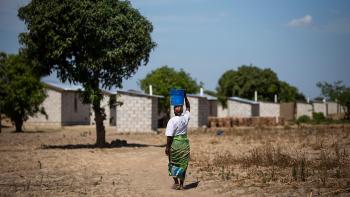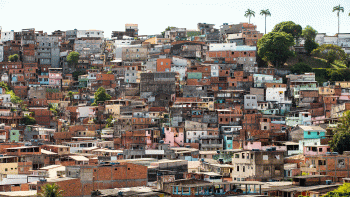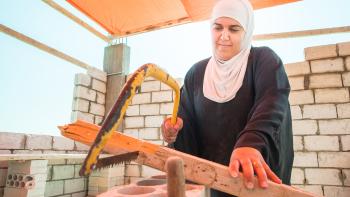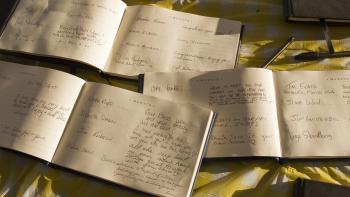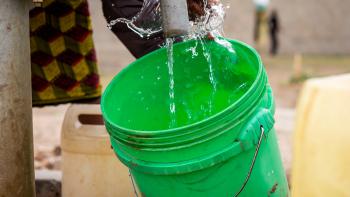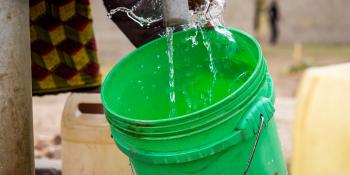
Water is life
Access to clean drinking water in Zambia
Episode 2 focuses on water, through an interview with Mathabo Makuta, national director of Habitat for Humanity Zambia.
The lack of clean water spreads diseases in Zambia
As Mathabo explains, inadequate access to clean and appropriate water supplies affects human health and economic development. In Zambia, for example, poor hygiene and limited access to clean drinking water cause diseases such as diarrhea and cholera, very common and potentially lethal.
The most affected are usually those living in the informal settlements, slums, around urban areas, as it happened with the cholera outbreak of 2017-2018, when almost 5,000 people were infected. When analysing the areas involved, 15 out of 20 resulted to be informal settlements outside of Lusaka.
70% of urban residents in Zambia live in slums
In Zambia, 60% of the population resides in rural areas, against the 40% living in cities. 70% of this last portion lives in informal settlements. Capital of the country and home to 2 million people, Lusaka is strongly affected by the water issue since its rapid urbanization led to the creation of slums all around it.
When it comes to water supply, many elements need to be taken into consideration, but two are crucial: the location of the sources and the affordability of the service.
Access to water is also a sexist issue
With regards to location, safety can be a challenge if the water source is not in a reasonable walking distance from the settlement. Women and girls – those who usually perform this task – get often assaulted, raped, and even killed on their way to go get it, especially late at night and early in the morning.
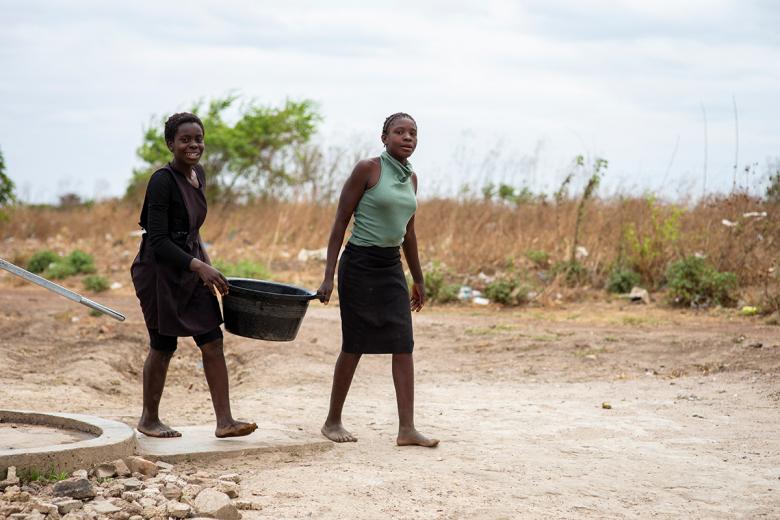
Also, in terms of school attendance, girls are the most vulnerable category. The lack of water in schools makes it impossible for them to take care of themselves during their period, so they often end up dropping out of school entirely in the long run.
For many, water is just too expensive
Affordability is still the main limit to provide clean water to everybody. The service needs to be paid for and poverty, together with the high unemployment rate – 11.41% as of November 2020, makes it hard to afford for most of the population.
In addition to this, the COVID pandemic has worsened Zambian economic vulnerabilities. Kwacha, the local currency, depreciated 30% since the beginning of the year. A household of five people – the average household in Zambia and most sub-Saharan countries – would need a daily supply of approximately 20 litres, and each litre costs around 1 Kwacha (0,046 USD), which would make a total of 600 Kwacha per month, when the minimum salary is 1,520 Kwacha per month[1].
These challenges are not limited to Zambia. The situation is similar in most African countries, especially Sub-Saharan ones. According to a 2018 Demographic and Health Survey, Zambia is taking control of the situation and slowly improving. In 2018, 72% of Zambian household had access to drinking water against 63% in 2014.
However, nearly half the population in rural areas remains without access to safe and clean water supplies. A slight improvement can be seen also in those areas, where 27% of the people has access to improved sanitation as compared to 20% in 2014.
Huge investment is needed to improve access
The involvement of institutions is another crucial point. In Zambia, for example, government is the sole provider of water, and there is a ministry of water which is responsible for adequate and clean portable water, sanitation and environment protection.
Unfortunately, the poor capacity of investment on improving the system and the inability to find alternative forms of funding and economical support, make the task particularly hard. Governments do not have the capacity to do it alone. Partnerships and collaborations with private companies are the only way to deliver what is needed and provide a proper service to everybody.
Because water is not only a physical, but also a social need. A home cannot be considered decent or complete if there is no clean water, and that is even more true during the COVID19 pandemic. Now more than ever, water can save lives and bring dignity to people’s lives.
Home Sapiens podcast was produced as a part of the Build Solid Ground Project, founded by the European Union, Habitat for Humanity. Its content is the sole responsibility of Habitat for Humanity and does not necessarily reflect the views of the European Union
[1] http://www.salaryexplorer.com/salary-survey.php?loc=242&loctype=1
Listen now:
Apple Podcasts
Spotify
Google Podcasts
<Go back> <Next episode>
